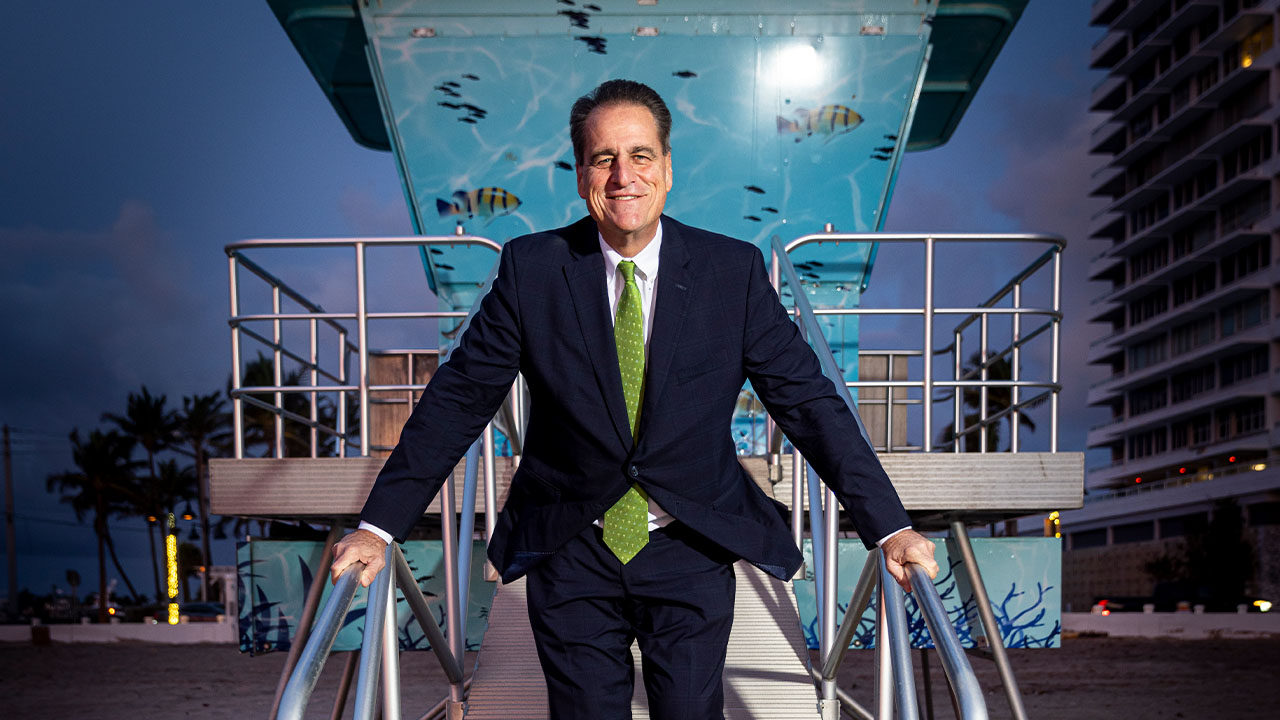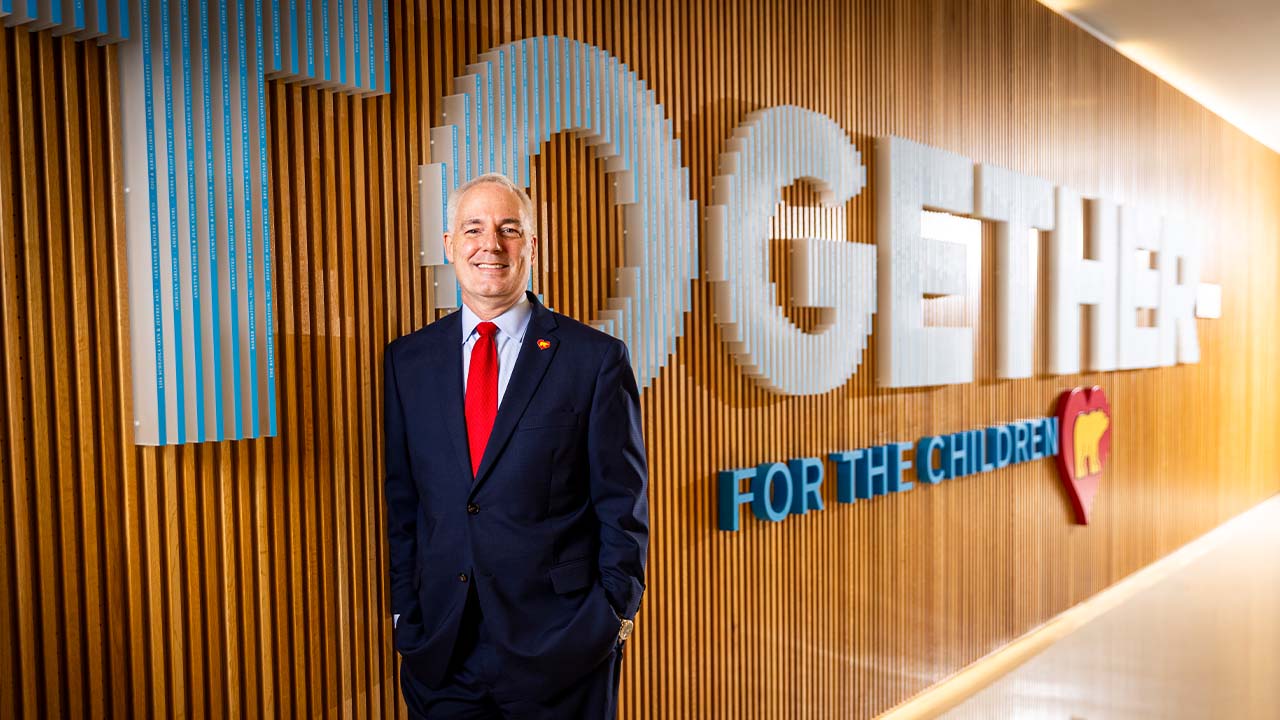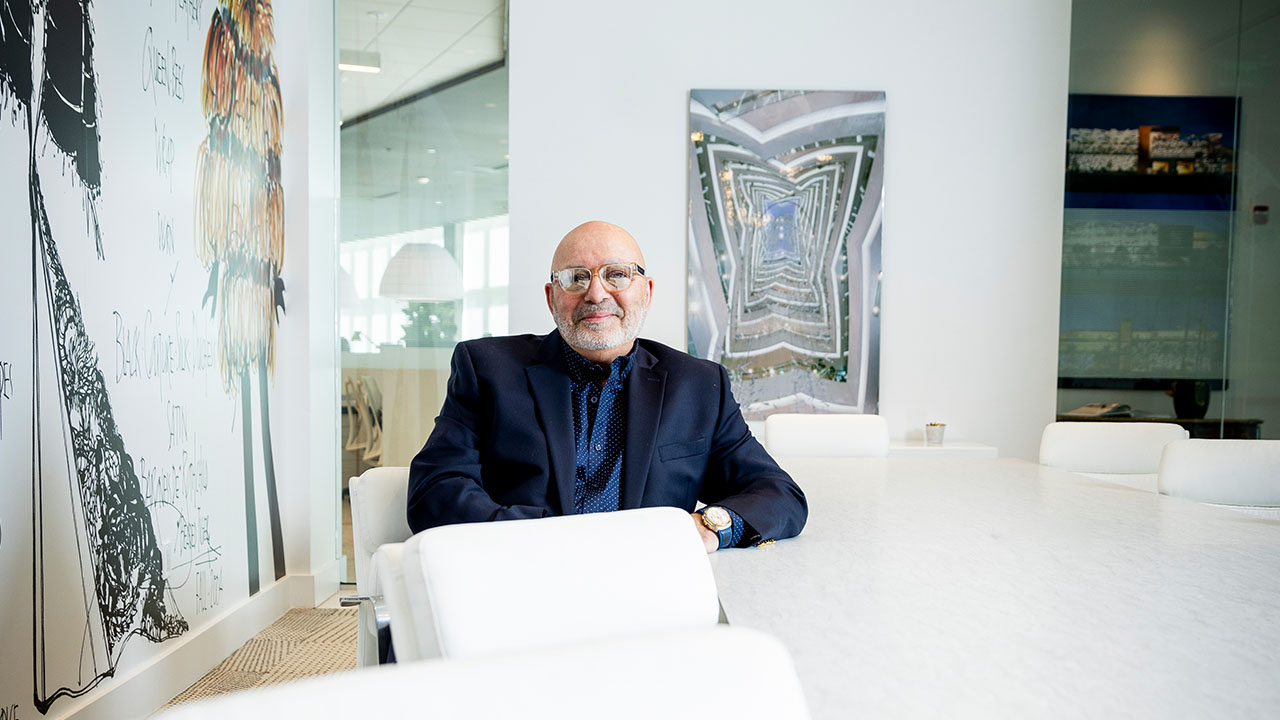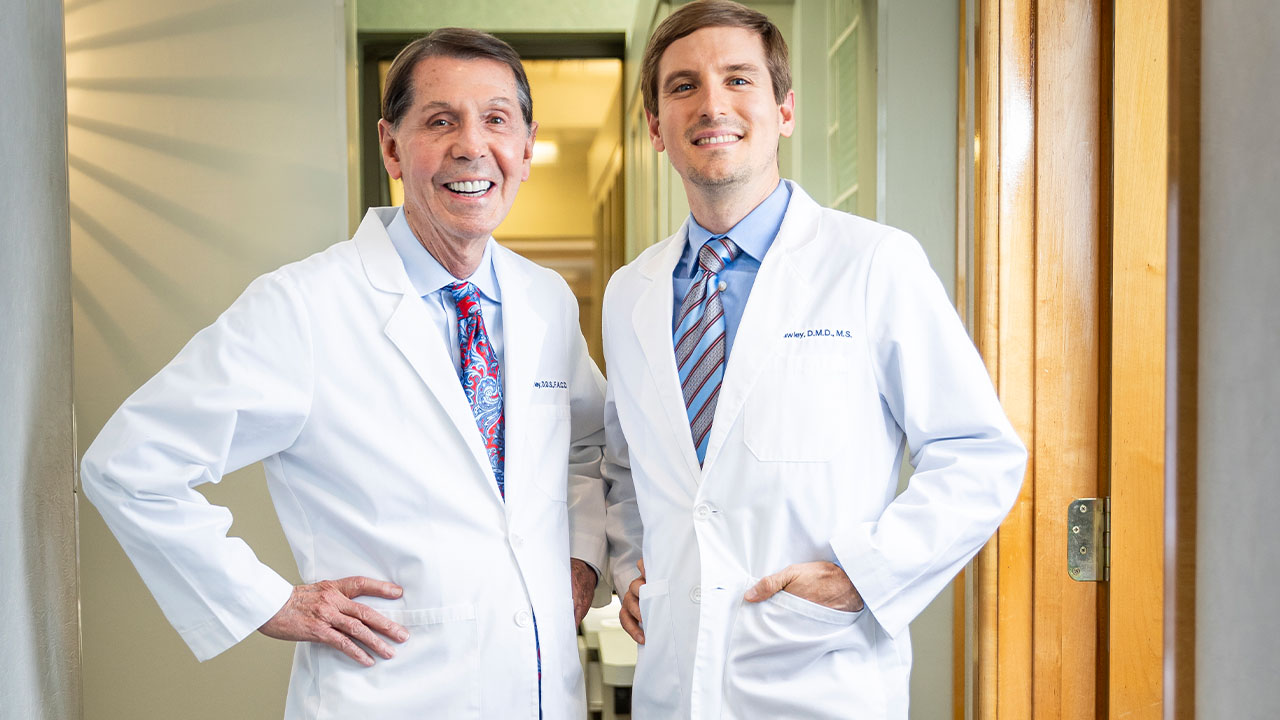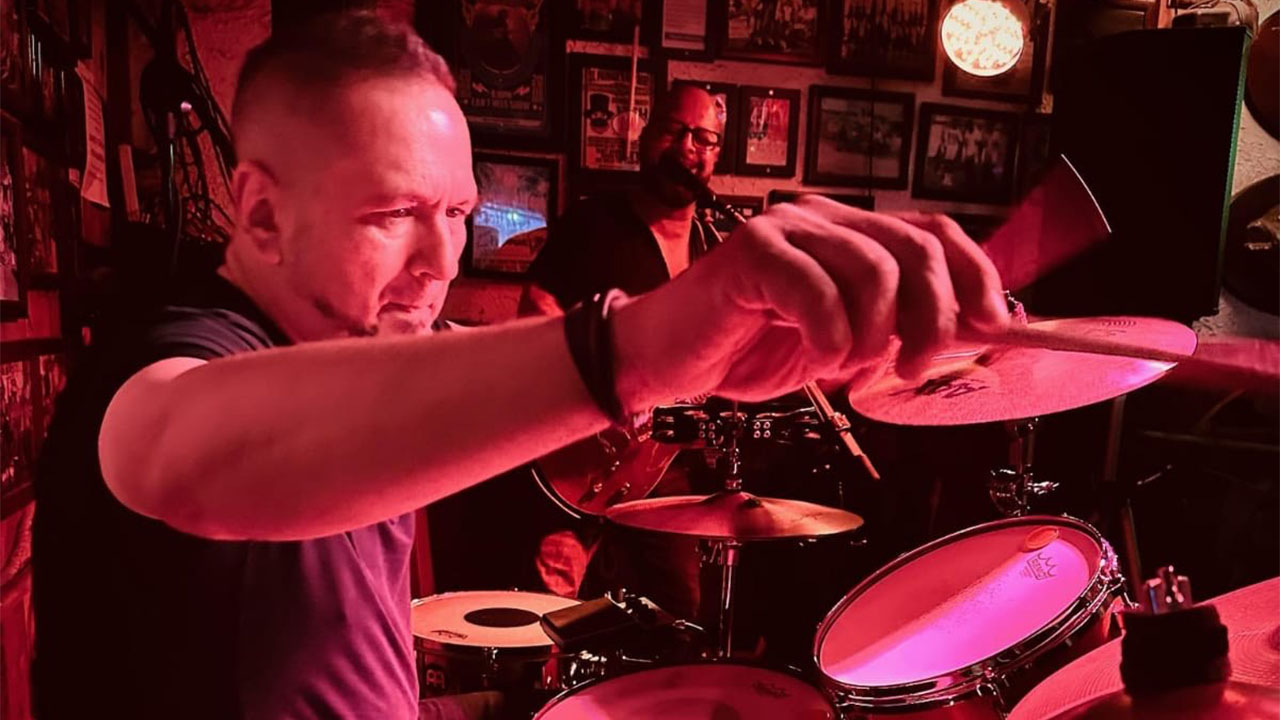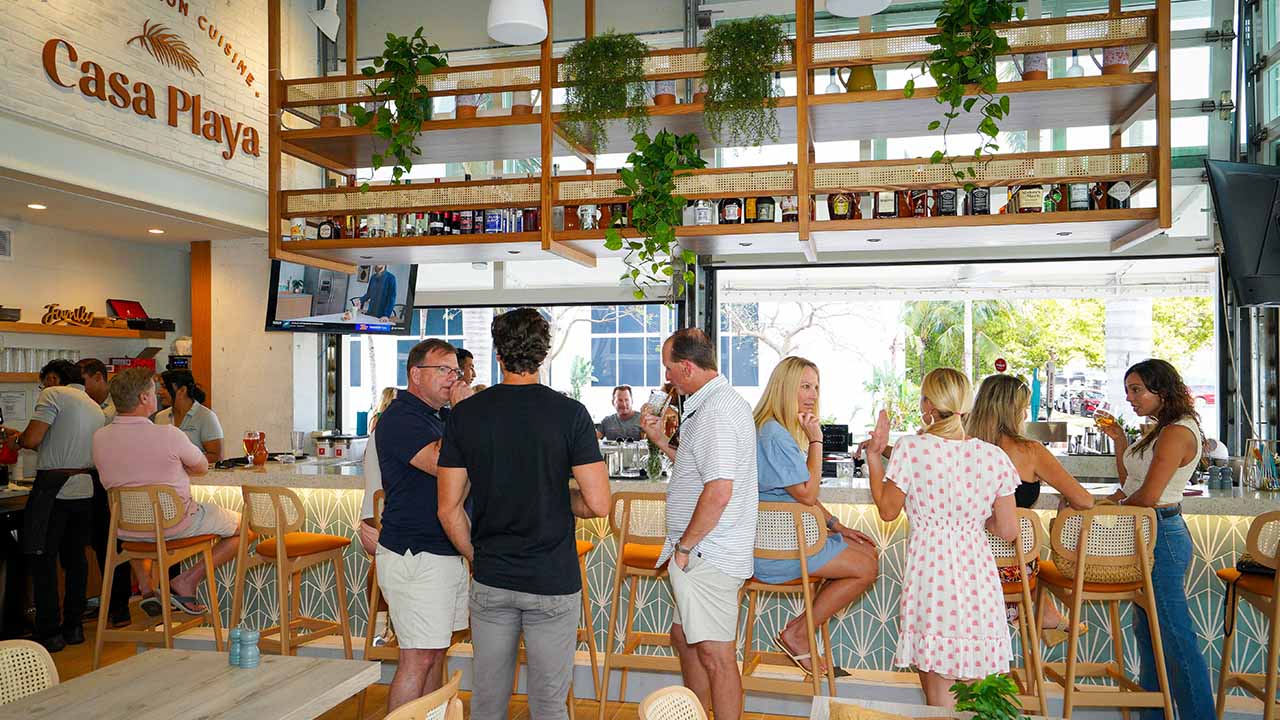John P. “Jack” Seiler surely couldn’t be blamed for wanting to hit the road after one of the longest public service careers in South Florida.
He has been term-limited twice—as a state representative and mayor of Fort Lauderdale after serving as council member, vice mayor and mayor of Wilton Manors for seven years. His law firm biography lists nearly 30 education, charitable and civic organizations, starting with chair-elect/president-elect of the Orange Bowl Committee.
But he’s finishing up as chairman of the Greater Fort Lauderdale Chamber of Commerce, so why not have an old-fashioned bar hop called “Hit the Road Jack…Dive into 2024” at the Elbo Room, McSorley’s Beach Pub and Parrot Lounge. Part of the proceeds from the Feb. 8 chamber event, which has Lifestyle as a media partner, benefit the Bonnet House Museum and Gardens.
Before Seiler was old enough to visit some of Fort Lauderdale’s most iconic bars—making friends with the owners and sometimes holding campaign rallies—he started making a name for himself at St. Anthony Catholic School. He was class president in the seventh and eighth grades. His eighth-grade basketball team won the Catholic county championship and then beat the public school champs. He lettered in basketball, tennis, track and cross country at Cardinal Gibbons and was student body president. If his schedule wouldn’t have been so tight, he would have played football, too.
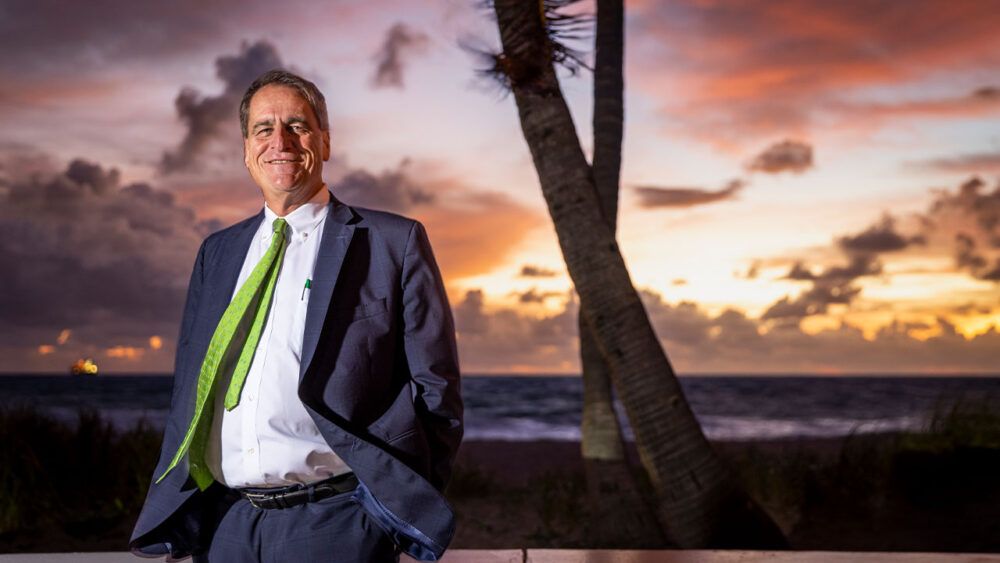
These days, after five knee surgeries and sporting an artificial knee, he sticks to the gym, cycling and pickleball.
When he was 10, he tagged along with his older brother to see the University of Southern California play Notre Dame in South Bend. He recalls thinking, “This is the coolest campus and the coolest place. … I got back and I said, “I want to go to Notre Dame and I want to be a lawyer.’”
It’s the only university he applied to. And, yes, he was president of the campus student organization his senior year.
He chose the University of Miami for law school because he was tired of the Indiana cold and also thought it would help connect him with the community. That it did. He worked in the office of Skip Campbell, who served 10 years in the Florida Senate and four years as mayor of Coral Springs. He participated in the trial program at the state attorney’s office led by Janet Reno.
“I got to try 10 or 12 cases by the time I left law school,” he recalls.
After graduation, he worked in the local office of Dykema Gossett, a Detroit firm that had just bought a practice in Fort Lauderdale. He became known as that young litigator and trial attorney.
He then worked for the firm now known as Johnson, Anselmo, Murdoch, Burke, Piper & Hochman, P.A., which had a heavy workload with 20 cities and 20 other governmental agencies, he says. On the side he worked on the Bob Graham and Lawton Chiles gubernatorial campaigns.
At 26, he was appointed to the board of adjustments in Wilton Manors and became chairman a year later. In early 1993, one of the Wilton Manors city commissioners resigned and Seiler decided to run. The only problem was the city was one of Anselmo Murdoch’s clients, so he had to resign from the law firm to avoid a conflict of interest. He opened his own law firm, which is now called Seiler, Sautter, Zaden, Rimes & Wahlbrink.
He served as a council member from 1993 to 1996, became vice mayor in 1996 and mayor in 1998.
Wilton Manors was transitioning from being a struggling blue-collar town to becoming the epicenter of LGBTQ life in South Florida. Before townhomes were developed northwest of Five Points, the neighborhood was called “crack town” by some residents.
Seiler said he focused on improving Wilton Manor’s financial picture. He employed the same strategy he would later embrace in Fort Lauderdale: Improve quality of life with parks, generate more tax revenue by fostering higher property values, but avoid raising the millage (percentage rate) for property taxes.
Warnings were given for code violations to spur cleanups and a focus was put on adding and improving parks. Young Jack had played baseball at Mickel Field (now called Mickel Park) along Powerline Road and played a role in the first round of the park’s improvements. Island City Preserve emerged as a new park on the north fork of the Middle River.
Seiler, the bachelor, had bought a home behind the Board of Realtors on 26th Street in 1989. That’s the same year he met tennis instructor Susan Rimes. She previously competed on the pro tennis tour from 1983 to 1987 and played in all four grand slam tournaments.
They became engaged on St. Patrick’s Day in 1990 and were married in August. Jack’s little house eventually became home to their four children, who are still live in the Fort Lauderdale area. Marianna (now Marianna Seiler DeJager) is a director at Tripp Scott. Jacqueline is a senior support manager at Online Vacation Center. Preston is a finance manager at Phil Smith Automotive Group. Susanne is a social media analyst at City Furniture.
Seiler embraced Wilton Manors’ transformation. “We had great friends and neighbors who were gay and lesbian,” Seiler says.
He welcomed George Kessinger when he opened Georgie’s Alibi in a struggling shopping center that once had a Piggly Wiggly. “I hope you are incredibly successful. I am only going to ask for one thing: Keep this shopping center looking nice,” Seiler recalls telling him.
Seiler’s stance on social issues is one reason he has stayed in the Democratic party. He remembers signing one of the first domestic partnership ordinances. He appreciates the success of the LGBTQ business community and says their support was a factor as he continued to win elected offices.
Seiler saw an opportunity to run for the Florida House when Tracy Stafford announced his retirement in 2000. Seiler won and served four terms, serving as vice chair and chair of the Broward legislative delegation. He was a ranking member on the policy and budget committee and worked across the aisle. He still keeps in touch with Marco Rubio and has a lot of respect for the Bush family. He worked on issues with Gov. Charlie Crist and his chief of staff, George LeMieux, who later became a U.S. senator.
Seiler says it was really fun run and made good use of his bachelor’s degree in business from Notre Dame.
However, when it comes to being a lawyer, Seiler says it is a profession, not a business. It’s OK to be a zealous advocate and a great trial lawyer, but act with courtesy and professionalism. Seiler is highly regarded in his field with a top rating by Martindale-Hubbell, which involves other lawyers recognizing their peers for their achievements.
He tried about a dozen cases in the past year and says it’s always about his clients’ cases and not Jack looking good in the courtroom. “Put your ego behind the client’s priorities,” he says.
Term limits ended Seiler’s run in the statehouse in 2008. With four children who were preteens and teens, he decided it was time to come home. He also became a board member at the new Broward Bank of Commerce.
Eventual CEO Keith Costello got to know Seiler from when they would take their daughter to a camping and cultural program known as Indian Princess.
Costello was approached in 2007 about opening the bank and thought Seiler would be a good board member.
“Jack was enthusiastic, got involved in organizing the bank and raising money and all the steps to get a bank,” Costello recalls. In 2008, though, Bear Stearns, Lehman Brothers and other financial giants imploded along with a big chunk of funding for the bank. The Fort Lauderdale bank group persevered and found success as a new bank unburdened by bad loans.
Two years after the opening, the bank’s chairman resigned and Seiler became chairman.
“That was the first time I had been a CEO of a bank. It was an incredibly difficult period,” Costello says. He liked bouncing ideas off of Seiler.
“He was a very inclusive leader. He would ask everyone in the room what we should do—go around and get everyone to talk and build consensus,” Costello says, adding that he has the same reputation as a government leader, just don’t call him a politician.
“One time, I called him a politician and he quickly corrected me and said I am a public servant,” Costello says.
The bank was a success and was sold for about $33 million to Centennial Bank in 2014.
With Jim Naugle’s term as Fort Lauderdale mayor ending in 2009, Seiler saw a new opportunity. He rented a house to establish residency in the city he grew up in and he soon had a permanent home in Coral Ridge.
Attorney Romney Rogers said he was considering a run for mayor and then found out Seiler was planning to do so.
“He came and talked to me. I knew his history and experience in the legislature and certainly his name recognition. So, I said, ‘Maybe it would be smart to just run for my commission seat,’” he recalls.
Seiler won 57 percent of the vote to avoid a runoff against three opponents and never dropped below 70 percent in two subsequent elections.
Seiler was a strong leader and consensus builder during the Great Recession, Rogers says. “In 2009, there was nothing happening.”
Rogers recounts the first gathering of the commission with everyone going around the table and talking about their vision and their ideas for projects. Seiler was last, turns to Rogers and says, “We are bringing back the St. Patrick’s Day parade.”
During Seiler’s roast as Downtowner of the Year, Rogers said he told everyone Seiler was right. “It was a great community builder and that’s what he is, a community builder.”
Seiler “is a thoughtful, courteous person who respects others and he is smart as the day is long,” Rogers says.
Seiler says he focused on the city’s economics—how to reduce expenses and manage the budget to get the city moving forward without raising the millage rate.
He once again turned to his love of parks as an economic engine, building new neighborhood parks and renovating others, such as a $3 million renovation of Joseph P. Carter Park on Sunrise Boulevard partly funded by the Orange Bowl committee. Las Olas Oceanside Park was one of the last achievements.
The commission addressed unfunded pension liabilities and borrowed a lot of money to fix infrastructure problems, a good move because interest rates were low, Rogers says.
The No. 1 debate in the city continues even now: Growth and development. Detractors say Seiler was too much in favor of growth.
He responds by saying, “No one wants to see unmanaged growth and unlimited growth. It’s not good for the community. It’s always to me about smart growth and well-managed growth.” The unavoidable reality was a lot of people were moving to the city.
Seiler retired as mayor in 2018. He became chairman of the chamber as it was recovering from the COVID pandemic.
Seiler worked to help membership rebound and get help from Washington to improve Port Everglades and address flooding, says Chamber President and CEO Dan Lindblade, who likes his leadership style. “He hears everyone and tries to get them to focus on outcomes instead of arguments. If he sees there are no concerns, he moves on to something more productive.”
Seiler appreciates the chamber’s community impact with education and transportation among its top priorities. “If the educational system fails, the future workforce will fail. If the educational system succeeds, the workforce succeeds,” he says.
A major transportation debate is whether a tunnel or new bridge should be built over the New River for the FEC Railway. The marine industry has been worried about river traffic delays as Brightline trains increase frequency and a new Coastal Link commuter rail service is eyed.
Seiler supports Coastal Link and the chamber supports a tunnel—if it is financially feasible. Published estimates for the tunnel range from $1 billion to $3 billion, while a mile-long bridge would cost about half a billion.
So, will Seiler ever go back into elected office? He says people urged him to run for statewide office in 2008, 2010 and 2012. The Attorney General was one of the offices bandied about.
Seiler said he couldn’t afford to take off a year from practicing law to run back then. These days, he could afford it.
“Now, I look around and it’s just a different day and age,” he says ruefully, especially in the primaries. “We’ve allowed the 15 percent on the far left and the far right to hijack the process.”
Seiler would like to see a return to when people could disagree without being disagreeable. “We will see what happens.”



